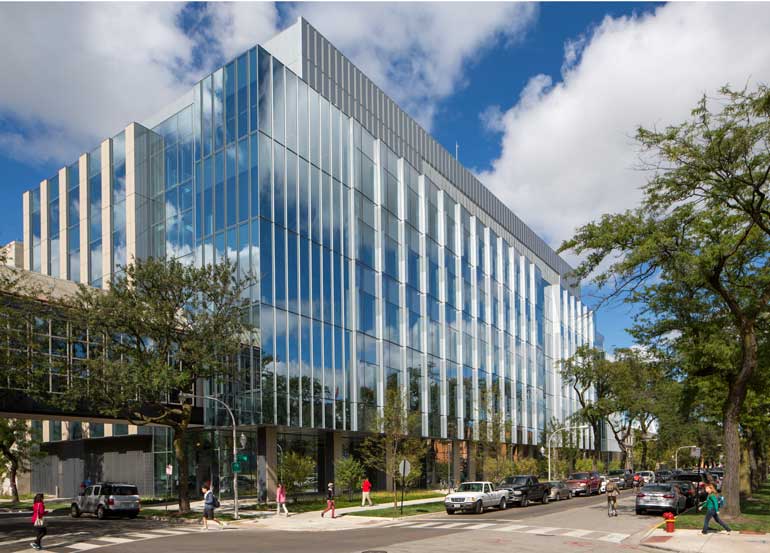Research Experience for Nigerian Engineering Undergraduates (RENEU) allows undergraduate engineering students from Nigerian universities to create research projects while being mentored virtually by UChicago Pritzker Molecular Engineering (PME) faculty and postdocs. The program will be returning this summer for its second consecutive year.
RENEU was conceptualized by PME Assistant Professor Chibueze Amanchukwu. Amanchukwu was born in Nigeria and is passionate about increasing access to engineering graduate degrees for Nigerian students.
“During the pandemic, it became obvious that one could do research virtually. So with that knowledge, around 2020, I organized a virtual workshop for students who are interested in graduate school,” Amanchukwu said in an interview with the Maroon.
The workshop aimed to provide students with some of the practical skills for applying to graduate programs, such as crafting cover letters and procuring letters of recommendation. Similar support is included in the summer program in combination with virtual one-on-one research support, providing students with essential research experience for their resumes.
“At the end of the day, a vital component of what the admissions committee is looking for in PhD candidates is whether the candidate has research experience,” Amanchukwu said.
The program is open to fourth- and fifth-year engineering students from Nigerian universities who have interests in engineering research areas that can be worked on virtually, such as machine learning or artificial intelligence. The students are then matched with PME faculty or students who are available to mentor a student for the eight-week-long summer program.
“The project is chosen such that it is of interest to the mentor so that they are invested in the success of that project, and they are willing to mentor a mentee,” Amanchukwu said.
When asked how he hopes to expand the program in the future, Amanchukwu said that he hopes to increase the number of mentees in the program, as well as “help them with the finances they need to apply for PhD programs such as application fees or their GRE exam.”
One student who participated in the program’s first year is Stanley Eshiemogie, a recent graduate of the University of Benin in Nigeria who studied chemical engineering. Eshiemogie was mentored by PME postdoctoral fellow Ritesh Kumar through the mentoring program, and his research focus was around using AI to find battery electrolyte options.
“Whenever we had meetings [Dr. Kumar] always encouraged me to bring my own ideas… and think for myself,” Eshiemogie said.
In addition to the final presentation at the University of Lagos at the end of the RENEU program, Eshiemogie also presented at the University of Benin Annual Research Day Conference. He says the RENEU program has opened up many opportunities within his field of study.
“It has helped me see some more opportunities that are available in this area,” he said.
Currently, Eshiemogie is continuing his research around batteries at the University of Benin.
According to Amanchukwu, the first round of the program last year not only gave students valuable experience and resources for pursuing a graduate school but also gave them insight into the various challenges that come with research.
“Doing a research project opens your eyes to the challenges in that space and why they are important for somebody to solve,” Amanchukwu said. He hopes that the RENEU project “lowers the barrier for Nigerian students and will allow them to feel that they themselves can be at a top university like UChicago doing world-class research.”
Applications are open for a new cohort of students who will complete individual research projects this summer with the help of Pritzker’s top molecular engineering students and faculty members.
Correction, April 8, 2024: A previous version of this article incorrectly said the program is open to students from the University of Lagos. The program is open to students from any Nigerian university. More information about the program can be found on its website.









